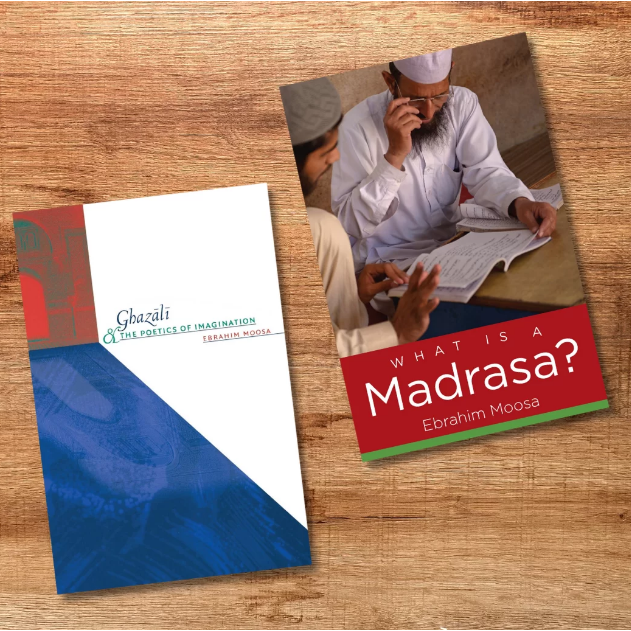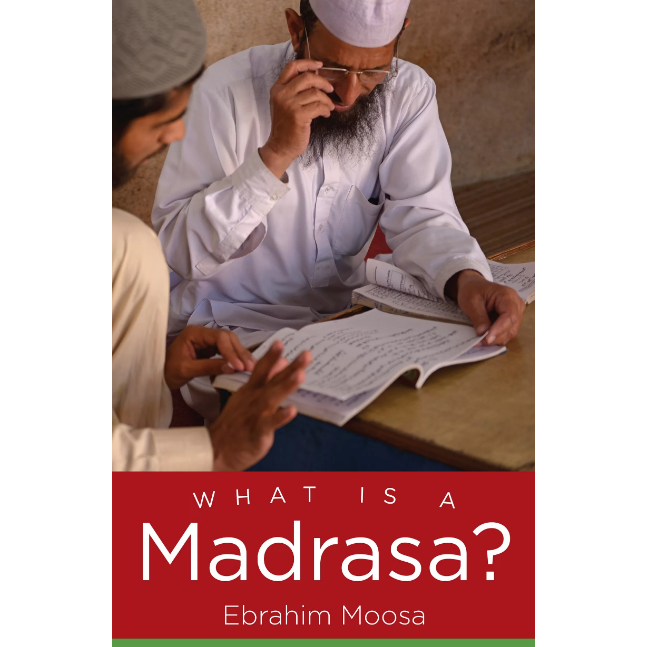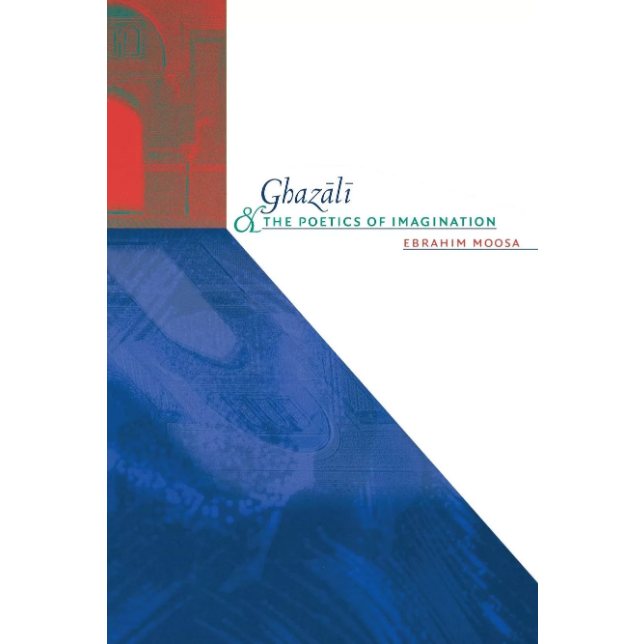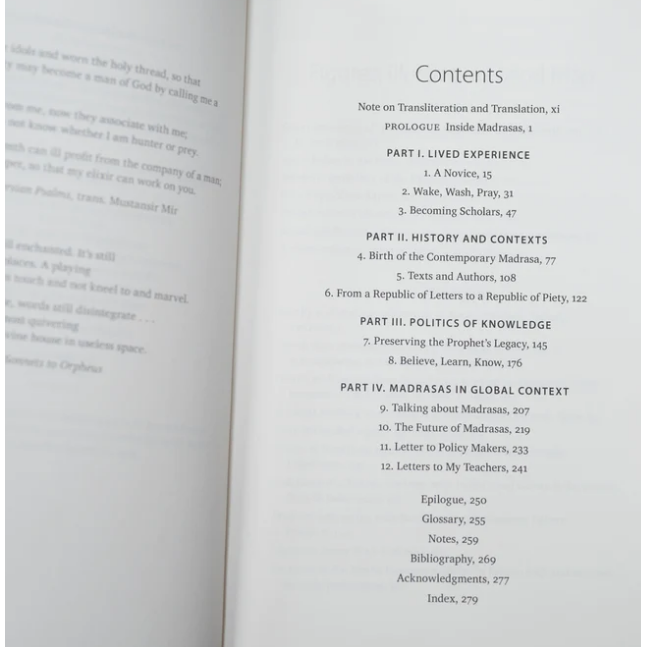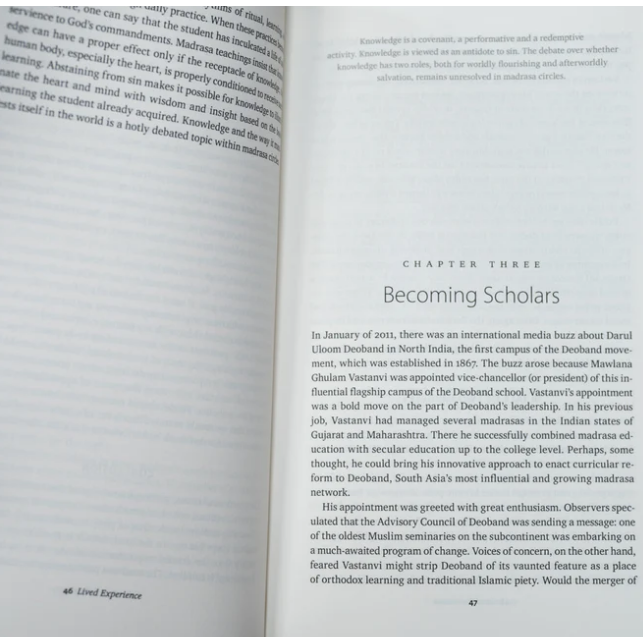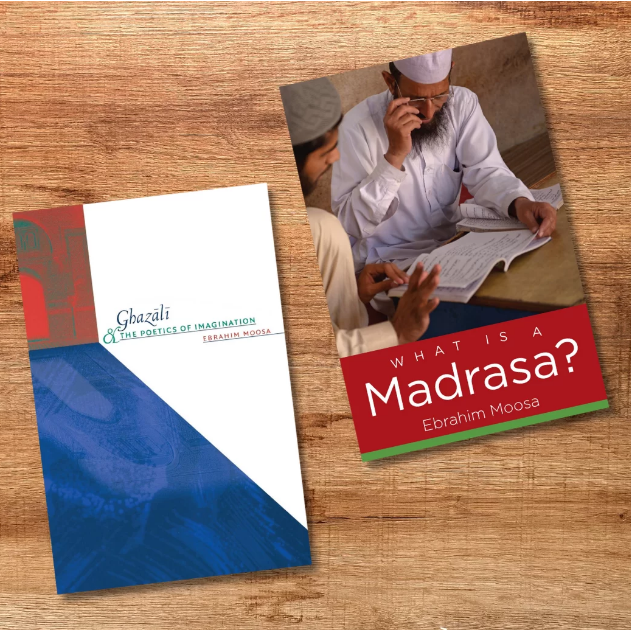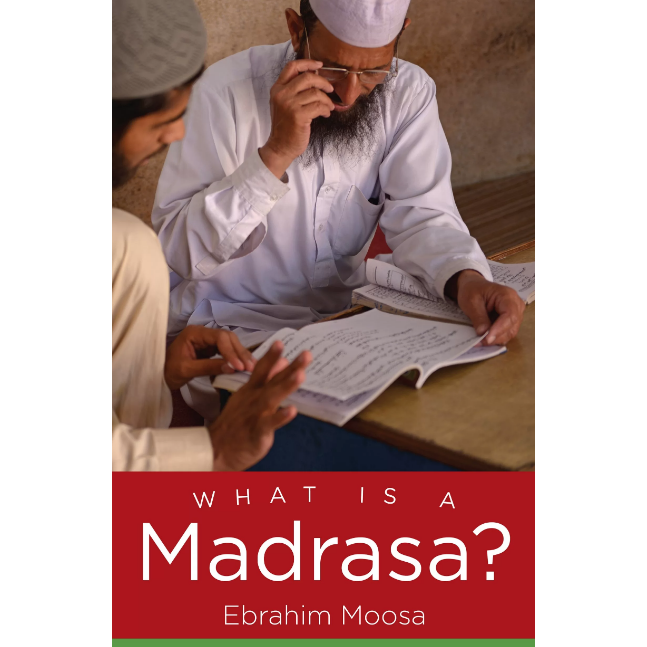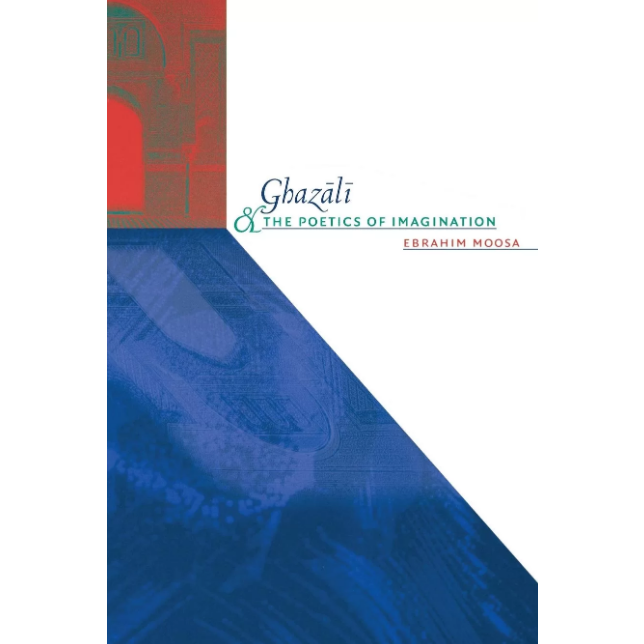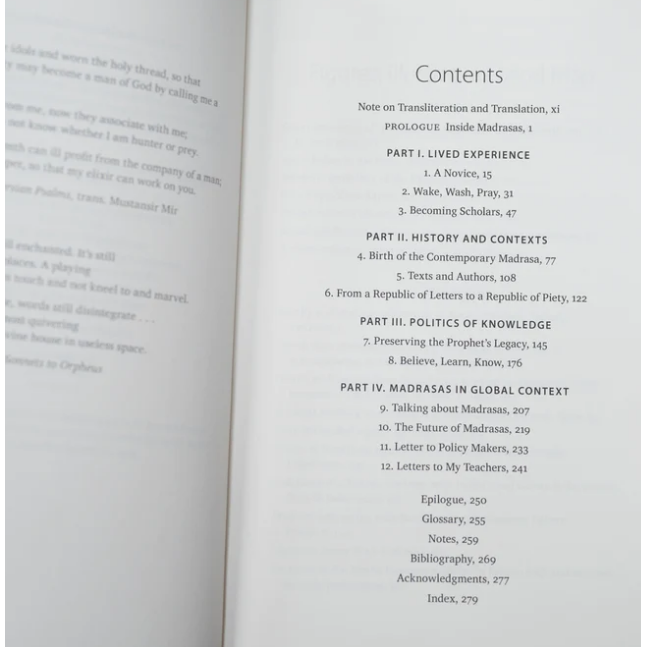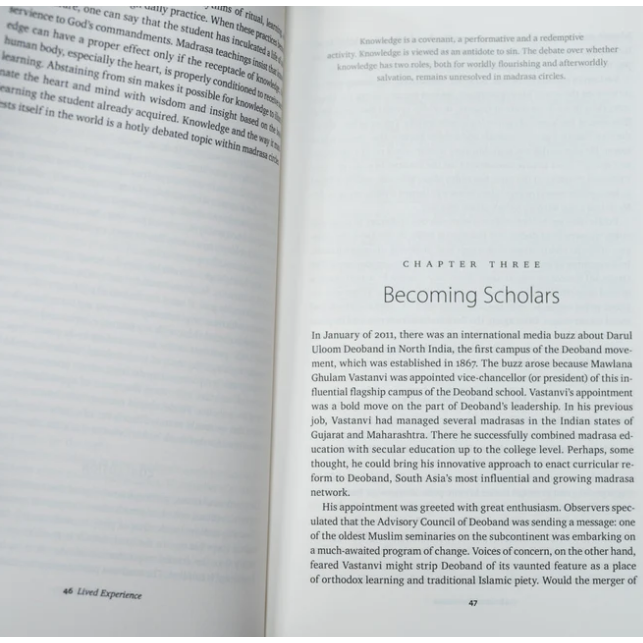Taking us inside the world of the madrasa–the most common type of school for religious instruction in the Islamic world–Ebrahim Moosa provides a crucial resource for anyone seeking to understand orthodox Islam in global affairs. Focusing on post secondary-level religious institutions in the Indo-Pakistan heartlands, he explains how a madrasa can simultaneously be a place of learning revered by many and an institution feared by many others, especially in a post-9/11 world.
Drawing on his own years as a madrasa student in India, he describes in fascinating detail the daily routine for teachers and students today. He shows how classical theological, legal, and Qur’anic texts are taught, and he illuminates the history of ideas and politics behind the madrasa system. Addressing the contemporary political scene in a clear-eyed manner, he introduces us to madrasa leaders who hold diverse and conflicting perspectives on the place of religion in society. Some admit that they face intractable problems and challenges, including militancy whereas others hide their heads in the sand and fail to address the crucial issues of the day. Offering practical suggestions to both madrasa leaders and U.S. policymakers for reform and understanding, he demonstrates how madrasas today still embody the highest aspirations and deeply felt needs of traditional Muslims.
Format: Paperback
Pages: 346

